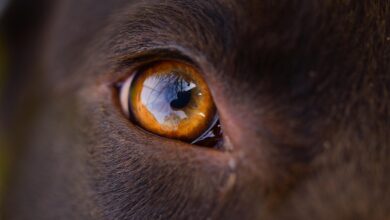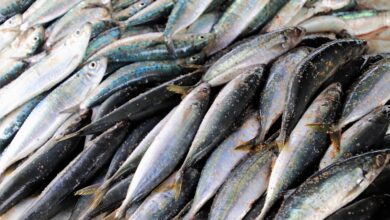
Cancer is a difficult and emotional journey, but with proper care, attention, and support, many dogs with cancer can still live a good quality of life. While conventional treatments like surgery, chemotherapy, and radiation are often recommended, a holistic approach can also complement these treatments and support your dog’s well-being. Below is a comprehensive holistic plan that can help guide you through this challenging time:
Consult a Veterinary Oncologist
The first step in managing your Labrador’s cancer diagnosis is to consult a veterinary oncologist. This specialist will assess the type of cancer, its stage, and recommend appropriate treatments. While holistic therapies can provide added support, the oncologist’s input is crucial for determining the best course of action.
Nutrition and Diet
Proper nutrition is one of the cornerstones of supporting a dog with cancer. The right diet can help manage the disease, boost immunity, and promote healing.
Cancer-Specific Diet: Some research suggests that cancer cells thrive on sugars and simple carbohydrates, so a diet that is low in these can be beneficial. A high-quality, protein-rich diet with moderate fat and low carbohydrate content can help maintain your dog’s weight and strength. Many holistic vets recommend adding vegetables, such as broccoli, spinach, and kale, which have antioxidant properties that may help slow cancer growth.
Omega-3 Fatty Acids: These healthy fats, found in fish oil or flaxseed oil, have anti-inflammatory properties and can help support the immune system. Omega-3s may also reduce inflammation caused by cancer or cancer treatments.
Supplements: Speak with your vet about using supplements like turmeric (curcumin), green tea extract, milk thistle, and vitamin C, which are believed to have anti-cancer properties. These supplements can help support your dog’s liver and immune system during cancer treatment.
Manage Pain and Comfort
Cancer often brings pain, and managing it is crucial for your Labrador’s quality of life. Holistic pain management methods can complement conventional pain medications to help keep your dog comfortable.
Acupuncture: This traditional Chinese medicine technique involves inserting tiny needles into specific points on the body to relieve pain, reduce inflammation, and improve circulation. Acupuncture can be particularly helpful for dogs with cancer pain or side effects from chemotherapy.
Massage Therapy: Regular gentle massage can help relax your dog, relieve muscle tension, and improve circulation. It can also be soothing for dogs going through cancer treatments.
CBD Oil: CBD (cannabidiol) has gained popularity as a natural remedy for pain, anxiety, and inflammation. While more research is needed, many pet owners report positive effects of CBD in helping their dogs manage cancer pain and improve overall comfort.
Alternative Therapies and Treatments
In addition to conventional treatments, there are alternative therapies that can help your dog feel better and support their healing process.
Homeopathy: Homeopathic remedies, prescribed by a qualified holistic vet, are sometimes used to help manage symptoms and boost your dog’s overall well-being. The remedies are individualized based on your dog’s personality and specific health needs.
Herbal Medicine: There are a variety of herbs that are thought to support dogs with cancer. For example, Echinacea is believed to stimulate the immune system, while Astragalus is thought to help strengthen the body’s defences. Always consult your vet before starting any herbal regimen to ensure safety and proper dosage.
Mushroom Therapy: Medicinal mushrooms like reishi, shiitake, and maitake contain compounds that may help fight cancer and improve immune function. Mushrooms can be a great addition to your dog’s regimen but should be used under veterinary guidance.
Stress Reduction and Emotional Support
Cancer can be a stressful experience for both dogs and their owners. Keeping your Labrador emotionally comfortable is just as important as physical care.
Maintain a Routine: Dogs thrive on consistency. Maintaining a regular routine for feeding, walks, playtime, and rest can help reduce anxiety. Ensure that your dog’s environment is calm, safe, and familiar.
Provide Comfort: Make sure your dog has a soft, quiet place to rest, especially if they are experiencing fatigue from treatment. Providing them with their favourite blanket or bed can offer a sense of security.
Quality Time: Spend as much time as possible bonding with your Labrador. Whether through gentle play, cuddling, or quiet companionship, these moments can provide emotional comfort for both you and your dog during this challenging time.
Exercise and Physical Activity
While your dog may not have the same energy levels as before, it’s important to keep them moving to the extent that they’re comfortable. Physical activity is vital for maintaining muscle mass, stimulating appetite, and reducing stress.
Gentle Walks: Short, low-intensity walks are great for stimulating your dog’s appetite and maintaining joint health. Adjust the pace and duration based on your dog’s energy levels and health condition.
Hydrotherapy: If your Labrador is experiencing pain or immobility due to cancer, hydrotherapy (water therapy) can be very beneficial. Swimming provides a low-impact form of exercise that can help maintain muscle tone without putting strain on joints.
Play: If your dog still enjoys playing, engage in gentle activities that keep them mentally and physically stimulated. This might be a tug-of-war game or playing with their favorite toy for short periods.
Hydration and Detoxification
Proper hydration is essential for cancer care, especially if your dog is undergoing treatments like chemotherapy that can cause dehydration. Make sure your Labrador has access to clean, fresh water at all times.
Detoxification: Supporting your dog’s body in detoxifying naturally can be important, especially if they are undergoing chemotherapy. This can include using supplements like milk thistle to support liver function, or ensuring they have access to foods and herbs known for their detoxifying effects (e.g., dandelion root, parsley, or turmeric). Speak with your vet to ensure you’re taking safe and effective steps in this area.
Monitor and Adjust Treatments
Cancer treatment is an ongoing process that may require changes based on how your dog is responding. Keep track of your dog’s symptoms, side effects from treatments, and overall well-being.
Keep a Journal: Track your dog’s symptoms, mood, appetite, and activity levels. This can help you and your veterinarian adjust the treatment plan if needed.
Communication with Your Vet: Always communicate with your vet about any new symptoms or concerns. Your veterinarian can help assess the effectiveness of treatments, including holistic options, and adjust medications or therapies accordingly.
End-of-Life Care
While it’s difficult to think about, it’s important to prepare for your dog’s end-of-life care. Holistic care at this stage can help ensure your dog is comfortable, pain-free, and surrounded by love.
Palliative Care: This focuses on providing comfort and alleviating symptoms rather than attempting to cure the disease. Pain management, appetite stimulation, and ensuring a peaceful environment are key components of palliative care.
Consult a Hospice Vet: Veterinary hospice care can provide in-home support, allowing your dog to pass peacefully in a familiar, comforting environment.
Love and Patience
Finally, one of the most important things you can offer your Labrador during this time is love and patience. Cancer is challenging for both you and your dog, but your emotional support will play a significant role in their well-being. Continue to provide affection, attention, and reassurance as you both navigate this difficult journey together.






